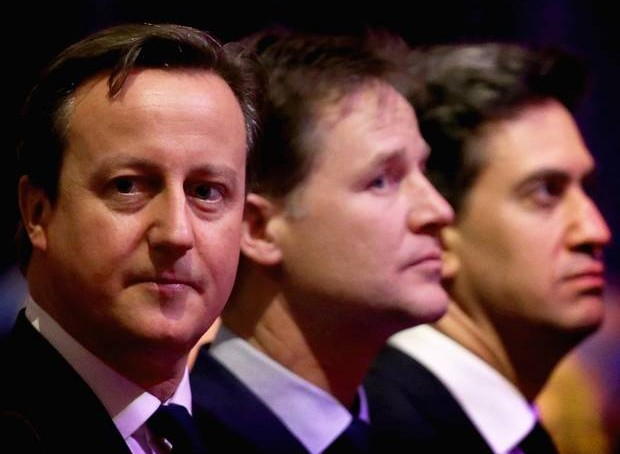It’s election time – that glorious few weeks or months when everyone furrows their brows in an attempt to make sense of the many complex issues facing the UK, trying to make an informed choice as to which party is best to address them.
This time around, healthcare is the biggest issue, and the future of the NHS. It’s vast and complicated, and one of the big talking points is diabetes. But who offers the best programme for people with the condition?
Furrow no more – this is a quick (but thorough) guide to diabetes and the general election.
Labour
Labour have pledged £2.5 billion a year to the NHS. It may not sound like a lot, but of all the parties, Labour probably has the clearest plan for raising the money: mansion tax; crackdown on tax avoidance by big companies; and a levy on tobacco firms.
To prevent type 2 diabetes in the first place, Labour has proposed limits on sugar, fat, and salt content in foods such as cereal, crisps, and soft drinks. They also support a traffic light system on food packaging in order to provide a simpler way to know whether or not something’s good for you.
Labour also pledges a crackdown on cheap alcohol, which research suggests causes a lot of obesity problems.
Regarding privatisation, Labour plans to exempt the NHS from competition laws, thereby leading the NHS away from “privatisation.”
Conservative
The Conservative Party has pledged £8 billion per year to the NHS, which is the amount NHS England has asked for.
The current government has introduced several prevention programmes to help slow the rate of type 2 diabetes. In March, it was announced that people in the most badly affected areas of the country would receive free exercise and cooking classes. It’s too soon to evaluate whether or not the idea’s been successful.
The Conservatives have been controversial for their introduction of the Health and Social Care Act (2012), which was described as the most significant structural rejigging of the NHS since its foundation in 1948. Critics have described it as “privatisation” of the NHS.
In short, it gives the responsibility of finding contractors to Clinical Commissioning Groups (CCGs). Because of competition laws, the CCGs have to allow private companies to bid on contracts against the NHS. So, while the government still pays for healthcare, they don’t always provide it. The idea behind this is that private companies will be better at running hospitals, and the Conservatives will build on this if elected.
Liberal Democrats
The Lib Dems believe that aggressive marketing of junk food is causing a lot of childhood obesity, so they want to restrict it. This includes banning junk food adverts until after the watershed.
Like Labour, the Lib Dems want a traffic light system on food packaging so that people can make healthier dietary choices with ease. They also think cheap alcohol is a problem, and would address it by setting a minimum price per unit of alcohol.
The big healthcare priority for the Liberal Democrats is mental health. They plan to establish a campaign to address the stigmatisation of mental health issues. They have also promised £500 million towards NHS mental health services.
Like the Conservatives, the Liberal Democrat Party pledges £8 billion a year to the NHS.
Green Party
The Greens aren’t happy with the state of mental health treatment either. In their manifesto they describe it as “the crisis of our time”. In addition to campaigns similar to the Lib Dems, they insist that nobody should have to wait more than 28 days for talking therapies; everyone should have safe and speedy access to quality care, 24 hours a day, 7 days a week. People with mental health problems will also be offered employment support.
The Green Party has pledged a whopping £12 billion per year to the NHS.
In terms of the prevention of type 2 diabetes, the Green Party plans to increase taxes on alcohol and cigarettes, lower the tax on healthy food, and use the increased taxes on unhealthy food to subsidise fresh fruits and vegetables.
All of which sounds good, but it isn’t entirely clear how it will all be funded.
UKIP
UKIP has pledged £3 billion per year to the NHS.
Regarding mental health, they too recognise that the stigma surrounding it is unfair and outdated, and will campaign to improve perceptions. Moreover, pregnant women and young mothers will receive priority access to mental health support.
Like all the other parties, UKIP recognises the severity of the dementia problem, and will increase funding for its treatment.
Which party convinces you? Who will you be voting for? Let us know who and why in the comments!
Image source: independent.co.uk




